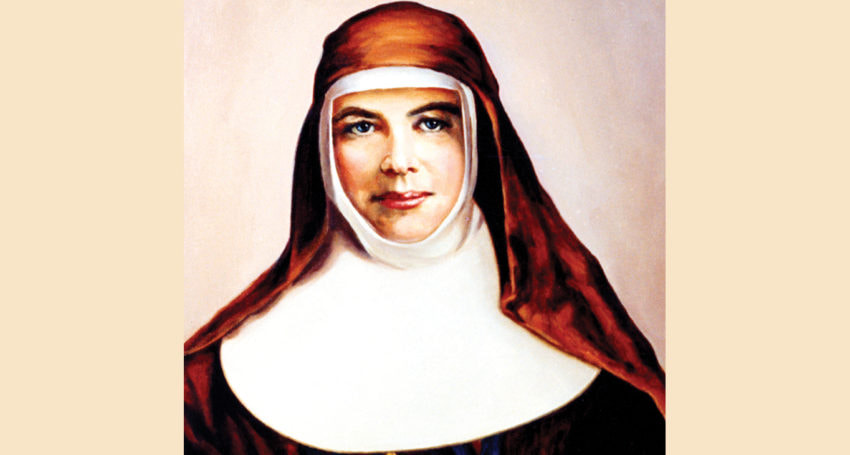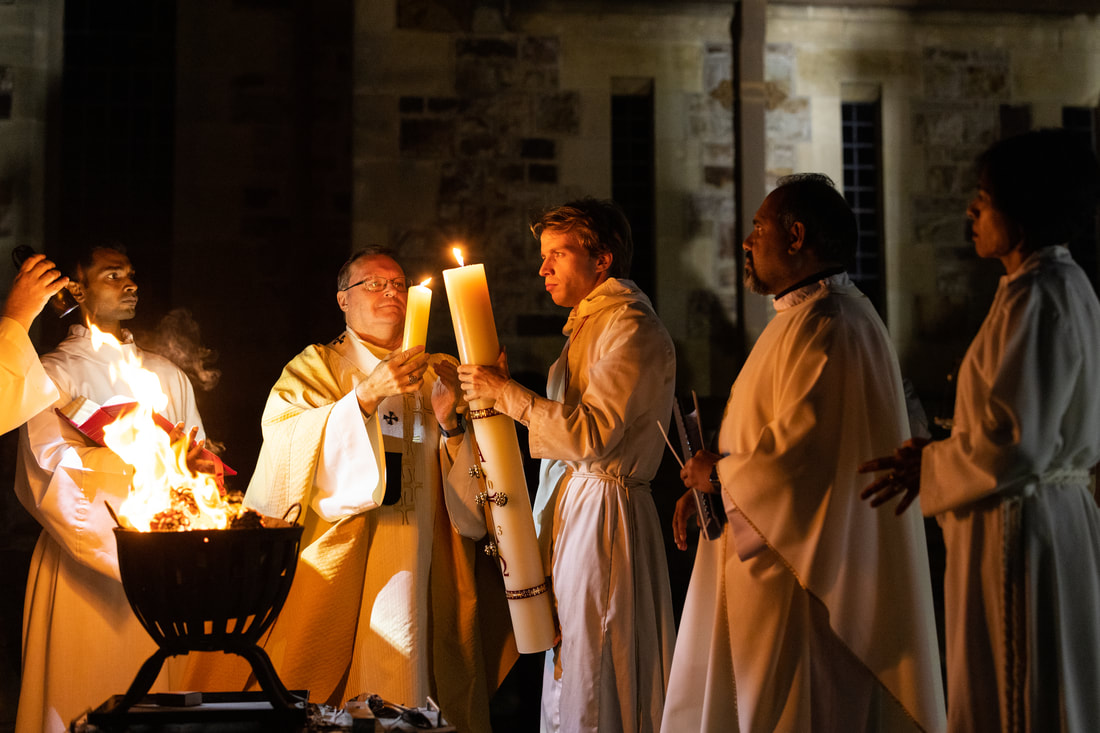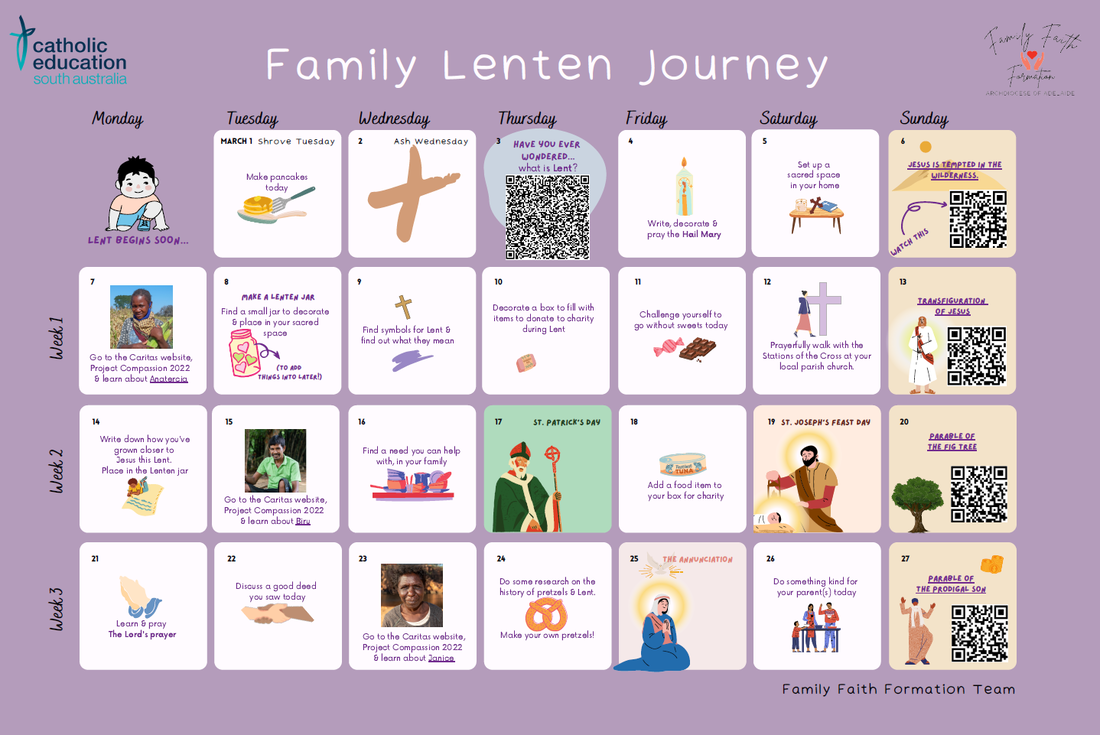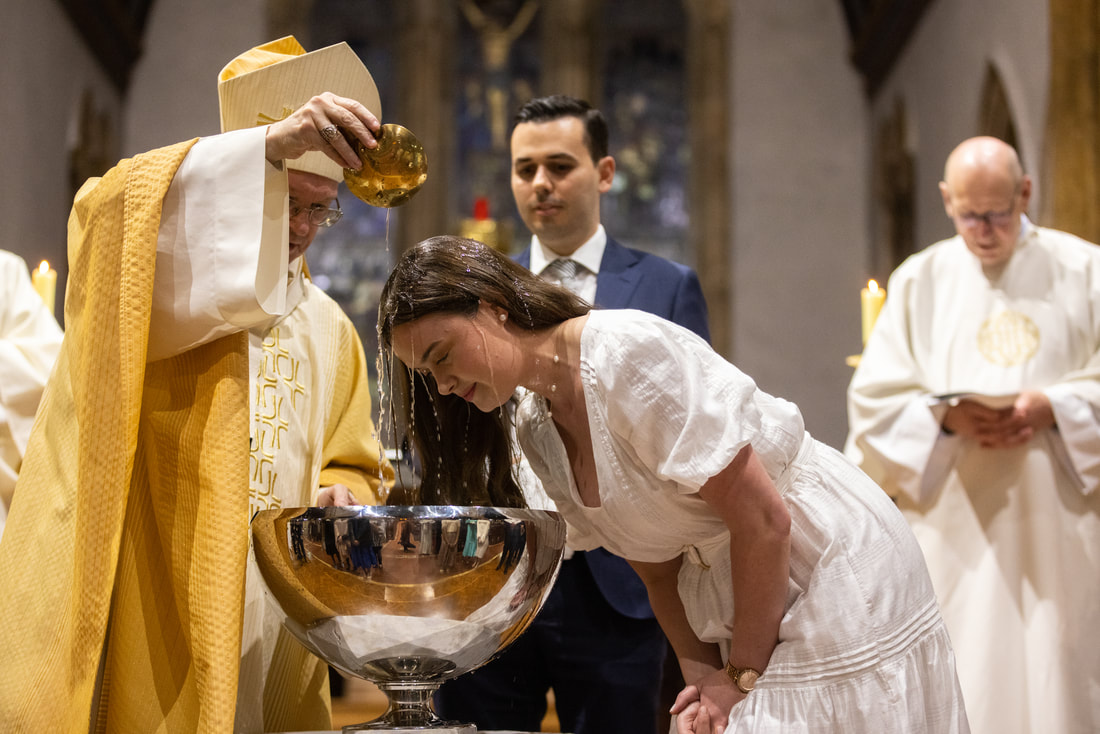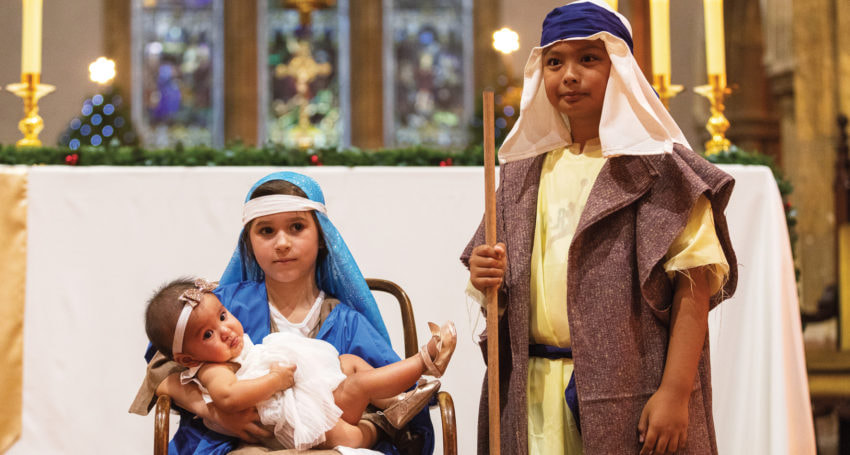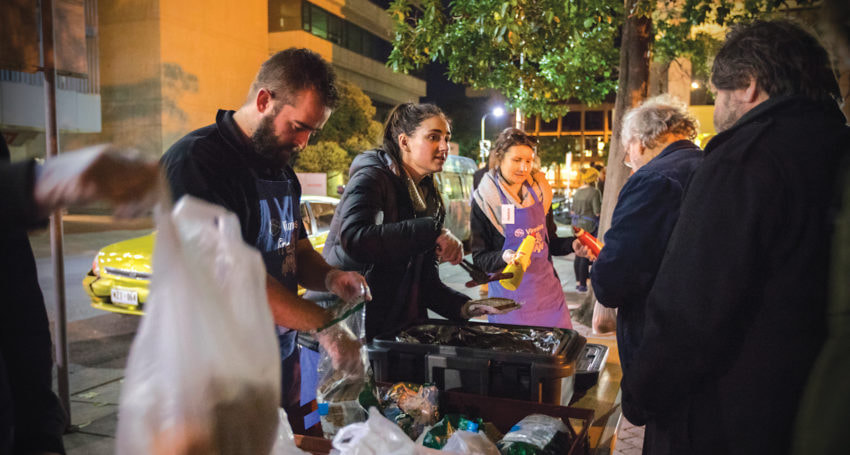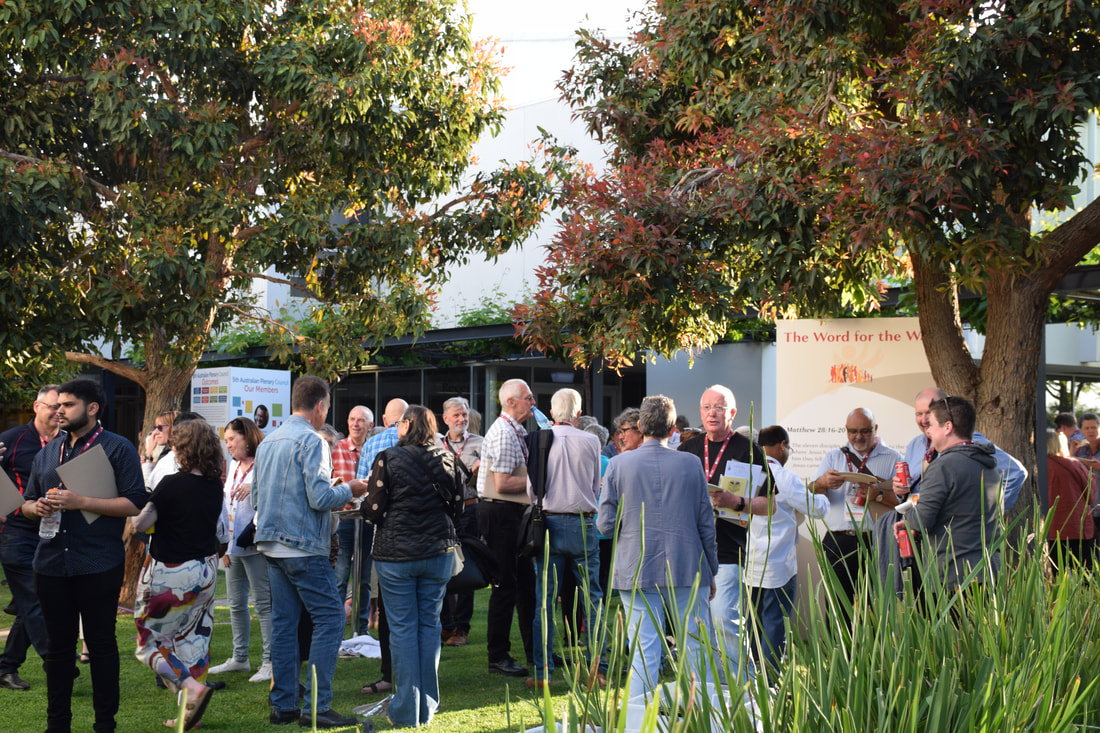|
By Lauren Bierer It’s as true for children as it is for adults: faith must be practised. We can teach, certainly, and instruct and inform. But what will be remembered are those tangible, in-the-flesh actions that get God out of our heads and into our hearts and hands.
It’s as true for children as it is for adults: faith must be practised. We can teach, certainly, and instruct and inform. But what will be remembered are those tangible, in-the-flesh actions that get God out of our heads and into our hearts and hands. Life moves fast, though technology isolates us from one another and our busy schedules keep us moving at warp speed. Within this landscape, feeling connected to others and to our faith can be difficult. Extended families rarely live in close proximity, parents work long hours, children are overwhelmed by homework and extra-curriculars and all the while, parents may feel isolated in raising their own children.
0 Comments
By Kathy Horan Since the earliest days of the Christian community, there have been ordinary women, men and children who have made a significant impact on the lives of those around them. The reason they have made an impact is because of their witness to faith in the risen Lord and their desire to be faithful followers of the Lord.
Among those ordinary, everyday people were the first apostles, including those closest to Jesus who denied knowing him, doubted him, ran away from Golgotha when Jesus was dying on the cross, and seriously questioned him in the light of the events of those last days we have recently commemorated during the Easter Triduum. And yet, their failures and shortcomings were deemed unimportant when they experienced the peace of the risen Lord and the knowledge that they were deeply loved and forgiven. By Dr. Jenny O'Brien Easter is almost upon us. On April 14 we begin the Easter Triduum (pronounced trid-you-oom), the most important three days in the Church’s year, when we celebrate the mystery of Christ’s passion, death and resurrection. It is as if the three days are stitched together into a single ‘great’ liturgy as we journey with Jesus from the Last Supper in the upper room, to the cross on Calvary, to the mystery and joy of resurrection. What begins with the Entrance Procession on Holy Thursday night continues seamlessly through Good Friday, the Easter Vigil, Easter Sunday morning and only ends with Evening Prayer late on Easter Day. By Lauren Bierer We each talk about what we are choosing to add or subtract from our day to draw our focus on the Lenten season and essentially our faith.
That could look like screen-free time after dinner to create opportunities for silence or conversation. It could be acknowledging our tendencies to choose words of bitterness or sarcasm and replacing that with words of kindness. It could be as simple as saying a prayer of thanks before dinner. Lent invites us to take a step back and reflect on our life. Many people ask ‘what should I do for Lent?’ or ‘what should I give up for Lent?’ By Kathy Horan Each year we wonder anew and give praise and thanks to God for coming and dwelling among us, for taking on our human condition and enabling us to come to God as faithful followers of Jesus.
A couple of weeks ago we celebrated the baptism of Jesus, and recalled the words God spoke to Jesus: ‘You are my Son, the Beloved; with you I am well pleased.’ (Luke 3:22) With these words, Jesus was named and claimed by God, and entrusted with God’s dream for the world, that all people would come to hear and take to heart the profound truth of God’s love, tenderness and mercy for each one of us. Immediately after his baptism, we are told that the Spirit drove Jesus into the wilderness where he fasted, prayed and discerned his mission, returning then to announce that the time had come, the kingdom of God was drawing near and all were invited to repent and believe the good news. By Dr. Jenny O'Brien If I were to ask a group of people to name their favourite Christmas carol, chances are that more than one would nominate Silent Night.
This beautiful carol, written in 1816 and set to music two years later, has touched the hearts of many for more than 200 years. Each verse begins with the words, ‘Silent night, holy night’ and yet, if we think about it, it was probably anything but a ‘silent’ night when Jesus was born. Bethlehem would have been abuzz, because a census had been called and everyone descended from the house of David was trying to find a place to stay. Even the stable where Jesus was born was probably not silent but filled with the noise of the animals kept there. And childbirth itself is not exactly a silent activity! So why did Joseph Mohr choose these two words to begin his carol? By Kathy Horan The end of another extraordinary year is drawing closer and our daily lives are occupied with the things needing to be completed for this year, along with thoughtful preparation and planning for the year ahead.
There is a lot of reflection on the year that has almost ended, lessons to be learned, hopes for the new year to be identified, acknowledgements to be made and goals to be set. Somewhere in the middle of these two strands, we continue with the day-to-day round of activities. As Catholics, we are also steeped in the rhythm of the Church’s liturgical year, a rhythm that sees us remembering and acknowledging key moments and experiences in the life of Jesus who came among us as a human being, who called people to join him in his mission of proclaiming the good news of the reign of God. By Kathy Horan In liturgical terms, we are travelling through what is called ‘ordinary time’, the longest of the liturgical seasons, a time for entering more fully into the mystery of Christ.
The feast of Pentecost reminded us of the Spirit’s presence in our midst as animator, consoler, the breath of new life, the great Spirit of Truth promised by Jesus to his disciples. During this ‘ordinary time,’ we are reminded that our baptismal call as Christians is to enter more fully and joyfully into the process of evangelisation and to recover the original freshness of the gospel, for ourselves and for others. Pope Francis observes that ‘in every activity of evangelisation, the primacy belongs to God, who has called us to cooperate with him and who leads us on by the power of his Spirit. It is God who renews, inspires, provokes, guides and accompanies us and it is God who brings new life’. |

